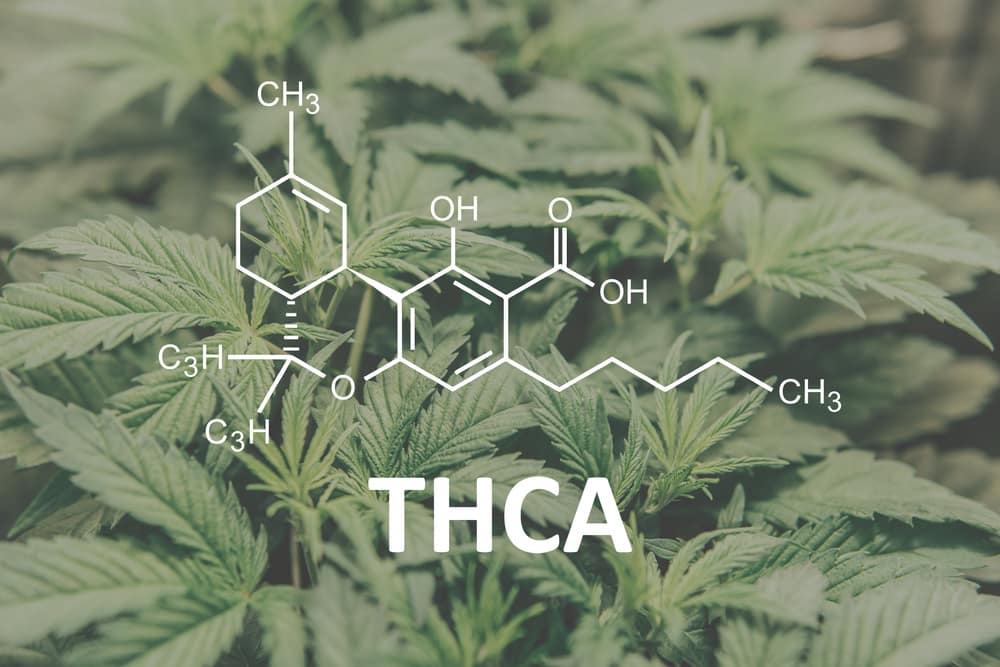
It is no stretch to say that Utah residents with Medical Cannabis Cards are familiar with THC. They at least know about it, even if they don't possess advanced scientific knowledge. But what about THCA? The two substances are similar in the sense that they are both related to the cannabis plant. But they are technically not the same thing.
Most of the time, it is no big deal when people speak of THC and THCA interchangeably. Yet it's probably a good idea to understand what makes them different. The best way to introduce their differences is to explain that THCA is the precursor to THC.
Here at Utah Marijuana, we like to describe cannabis as offering a cornucopia of compounds. Cannabis naturally produces cannabinoids, terpenes, flavonoids, and other compounds we can harvest for a variety of benefits. Two of those compounds are THC and THCA.
THC and THCA are considered primary metabolites. Compounds like terpenes and flavonoids are known as secondary metabolites. If you'd like to know more, The Cannigma has an excellent explanation of all of this on their website. For our purposes, let us stick with THC and THCA.
In order to transform raw plant material into the products you buy at your local Medical Cannabis pharmacy, processors need to extract the desired compounds. But guess what? They don't actually extract THC from plant material. They extract THCA.
'THCA' is an acronym that stands for 'tetrahydrocannabinolic acid'. It is more or less THC in an acid state. But in this state, it doesn't help us. There are no known medical benefits to ingesting or otherwise using THCA. What we want in the Medical Cannabis community is THC. So how do we get it?
Transforming THCA into THC requires separating out the carbolic acid group. We want that group to be taken away. The easiest way to do it is to apply heat. If you use Medical Cannabis with a dry heat vaporizer, that's exactly what you're doing. You are applying just enough heat to release the THC – separate from its carbolic acid group – without actually burning the material.
Processors do not rely on huge dry heat vaporizers to produce THC. Instead, they apply one of several different processing methods to extract crude oil from plant material. Crude oil contains all those primary and secondary metabolites. Things get interesting after extraction.
The crude oil is subjected to high heat and pressure in a process similar to distillation. The different compounds in the crude oil evaporate at different temperatures. So through evaporation and condensation, the various compounds can be separated. But that's not all.
The heat and pressure applied during processing also releases the carbolic acid group. In scientific terms, this is known as decarboxylation. THCA becomes THC, CBDA becomes CBD, and so on.
Our team here at Utah Marijuana gets the fact that these sorts of things do not interest everybody. But to us, it is fascinating stuff. We thoroughly enjoy learning everything we can about Medical Cannabis, including how it's processed and how it can help patients feel better. And speaking of feeling better, that is our main goal. We want you to feel as good as possible.
Just remember that THC and THCA are distinctly different despite sharing some similarities. They both come from cannabis plants. It is just that one is a direct metabolite while the other is derived from it. If you can remember that THCA is the precursor to THC, you are all set. That's the most important thing.
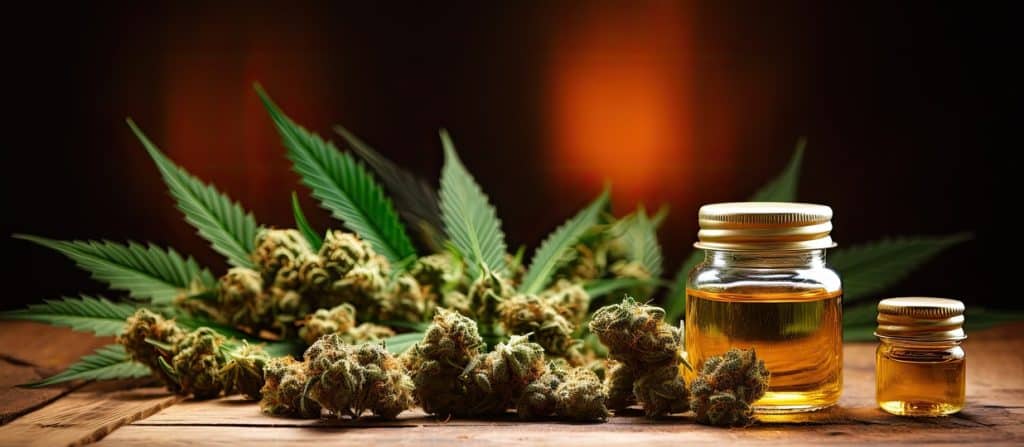
One of our goals here at Utahmarijuana.org is education. We want Utah's Medical Cannabis patients to know as much as possible about cannabis and medications derived from it. With that in mind, we want to offer this brief reminder about THC, THCA, and the difference between the two compounds. We briefly touched on this topic in a blog post published a few years ago.
As you might already know, THC is the active ingredient in the vast majority of cannabis medicines. It is possible to purchase THC-free products based in state and federally legal CBD. But the products for which a Medical Cannabis card is required in Utah contain THC or, more specifically, delta-9 THC. This differentiation will be important in just a minute.
Different varieties of cannabis plants contain a wide range of cannabinoids and terpenes. At last count, there were more than a hundred such compounds found organically in cannabis plant material. THCA is just one of them; CBDA is another.
THCA is known scientifically as tetrahydrocannabinolic acid. In its natural state, it doesn't have a lot to offer in terms of medical benefits – at least based on what we know right now. In order to derive any such benefit from it, THCA needs to be converted to THC. And what is the best way to do that? By applying heat.
Heat causes THCA to give up its carboxyl group (the acid). Here in Utah, Medical Cannabis processors extract all the cannabinoids and terpenes they can from plant material. They apply heat and distillation to separate the compounds. A byproduct is decarboxylation, the process of transforming THCA into THC through the application of heat.
In its natural form, THCA will not get you high. It does not have any psychoactive effects. Unfortunately, THCA doesn't appear to help much with the chronic conditions most often associated with Medical Cannabis. On the other hand, THC does help.
THC begins its life as THCA. But following decarboxylation, it has the psychoactive and medicinal effects Medical Cannabis patients are after. THC can be combined with other cannabinoids and a selection of terpenes to offer defined medical benefits.
Incidentally, what applies to THC and THCA also applies to CBD and CBDA. The latter occurs naturally in cannabis plants. To get from CBDA to CBD, decarboxylation is necessary. Heat and distillation are once again the primary processes by which this happens.
The professionals that run our clinics are frequently asked about THCA's legal status. The answer to that question depends on who you ask. On one side of the coin is those who hold strictly to the language of the 2018 Farm Bill in insisting that THCA is legal.
According to their reasoning, the only cannabis-related substance banned by the Controlled Substances Act (CSA) is delta-9 THC. Because THCA has not yet been decarboxylated, it does not qualify as delta-9.
On the other hand, the Drug Enforcement Agency (DEA) insists that it retains control over any and all compounds derived from cannabis. In their estimation, THCA is included on Schedule I of the CSA. Therefore, they still consider it illegal. We like The Cannigma's take on the matter: THCA occupies a gray area of the law. It is best to approach it with caution.
Here in Utah, THCA is not something we talk a lot about in the Medical Cannabis realm. We may have to start talking about it at some point in the future. It is out there, and it may have some medical benefits attached to it.
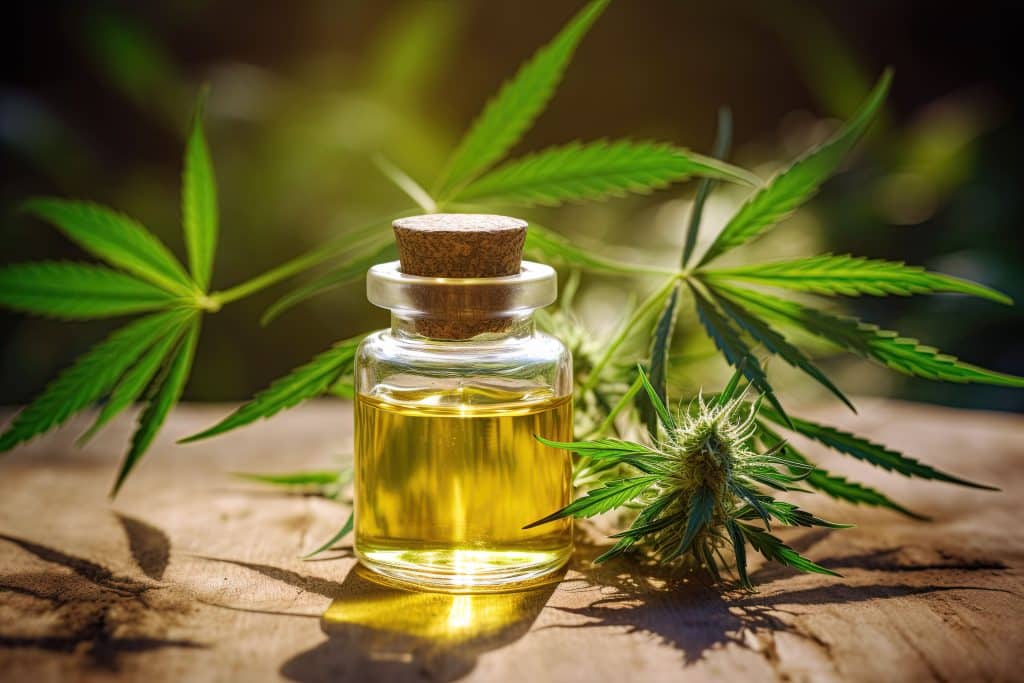
The mechanisms behind Medical Cannabis efficacy have long been a fascination among many of us here at UtahMarijuana.org. Those of us in the industry have our hunches, but many of the mechanisms are still unknown. For example, is feeling high one of the mechanisms? And if so, does that make it a benefit derived from using Medical Cannabis?
Though all of this might sound pretty self-evident to our readers, the questions posed here are directly related to a 2023 study out of the University of New Mexico. That study showed a fascinating correlation between feeling high and Medical Cannabis' perceived benefits. However, researchers also discovered a correlation between Medical Cannabis consumption and increased negative side effects.
Researchers enrolled nearly 2,000 patients and asked them to record their perceptions of a combined 16,000 Medical Cannabis experiences. Among other things, they were interested in whether feeling high made any difference in medication effectiveness. The researchers acknowledged an inherent challenge to their study: variations in the way feeling high is defined. There is no scientific standard.
Despite this particular challenge, the research uncovered some noteworthy things:
It is worth noting that nearly every prescription medication has both positive and negative side effects. We all weigh those side effects when determining whether to take a drug. As long as the good outweighs the bad, we tend to consider a drug worthwhile.
What is curious in this case is that feeling high appears to lead to more bad side effects than good. That takes us right back to the question of whether feeling high is a benefit to Medical Cannabis patients.
It wouldn't be right for us to judge Medical Cannabis based solely on positive and negative side effects. At the end of the day, symptom relief is what it is all about. If you were talking to a chronic pain patient, for example, an increase in negative side effects might be worth tolerating just to get some much-needed pain relief.
The conditions for which Medical Cannabis is recommended are mostly chronic conditions that can have debilitating impacts on a person's life. We go back to chronic pain. Living with pain month after month, year after year takes its toll. We have known patients so desperate for relief that they are willing to tolerate just about any side effect Medical Cannabis might offer.
Even with that knowledge, we get the fact that feeling high is not always the goal. In fact, some Medical Cannabis patients avoid it altogether. They are more interested in how cannabinoids can help alleviate their symptoms than walking away feeling the euphoria that is so often attributed to cannabis consumption.
While the data from the 2023 study requires a lot more analysis, one thing we know for sure is that Medical Cannabis consumption is a very personal thing. How any one patient responds to therapeutic cannabis is not necessarily indicative of how other patients will respond.
There are those patients who believe feeling high is a major benefit derived from Medical Cannabis. There are others who would say just the opposite. What is important in all of this is whether therapeutic cannabis is working for a particular patient. Each patient has the freedom to decide if the benefits of Medical Cannabis make any negative side effects worth tolerating.
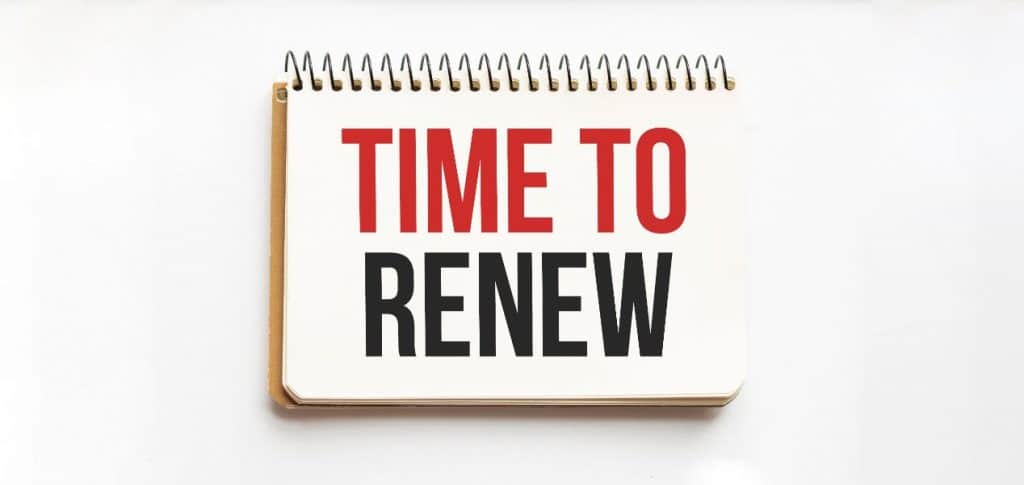
As you probably know by now, updates to Utah's Medical Cannabis law implemented earlier this year increased the Medical Cannabis Card renewal period from six months to one year. One year is now the norm. However, it is not set in stone. Medical providers can recommend a 3- or 6-month renewal period if they deem it appropriate.
Our guess is that shorter renewal periods are not going to be an issue for most Medical Cannabis patients in the state. But obviously, that is a decision medical providers and their patients will have to work out together. This is the way it should be. Patients should ultimately be in control of their own healthcare. Ideally, they should collaborate with their medical providers to come up with the best and most effective strategies.
New patients are getting on board with Medical Cannabis all the time. That being the case, you might be reading this post without having any clue as to how Utah's program works. It all starts with qualifying conditions.
In order to purchase Medical Cannabis at a state licensed pharmacy, you need to have a valid Medical Cannabis Card. To get that card, you need to have been diagnosed with one of the qualifying conditions on the state list. Some of the more common conditions seen in Utah include chronic pain, PTSD, cancer, and seizure disorders.
If you have a qualifying condition and your medical provider believes Medical Cannabis is an appropriate treatment, they can help you get your card. That is our mission here at UtahMarijuana.org. Our parent organization operates numerous clinics staffed by Qualified Medical Providers (QMPs).
Our QMPs work with two kinds of patients: patients looking to get that first Medical Cannabis Card and current patients that need a Cannabis Card renewal. We make the point as a reminder that permanent cards are not issued. As with any other prescription medication, Medical Cannabis should be used in accordance with the medical provider's recommendations. To ensure that happens, the state requires annual renewals.
Again, one year is the norm. If you were to get your first card today, you would need to renew it before this same time next year. The only exception would be if your medical provider recommended a 3- or 6-month renewal period. If you have any questions about a shorter renewal period, do not be afraid to ask your medical provider about it. Utah's Medical Cannabis program works best when patients and their medical providers have open, frank discussions.
What happens if you don't renew your card prior to its expiration? It will no longer be valid once the expiration date is reached. In such a case, you would no longer be able to purchase Medical Cannabis products from a state-licensed pharmacy.
As far as we know, the state does not allow a grace period for renewal. So if you know that you're going to want to keep your card active beyond your next expiration, don't wait until a day or two before to set up an appointment with your medical provider. Give yourself plenty of time to get the renewal taken care of.
If you need assistance with either a new Medical Cannabis Card or a Cannabis Card renewal, feel free to contact us here at UtahMarijuana.org. We can help you connect with any one of our clinics so that you can set an appointment to meet with the QMP. We will do everything within our power to help you along your Medical Cannabis journey.

Menopause is no fun. As a woman's body goes through significant changes, those changes can be extremely uncomfortable. Everything from mood swings to night sweats and pain can make life miserable for perimenopausal women. Apparently, some are turning to Medical Cannabis for menopause.
A recent online survey from the North American Menopause Society (NAMS) suggests that a significant number of women are using Medical Cannabis as "an adjunct treatment for menopause-related symptoms." The small-scale study involved some 250 perimenopausal and postmenopausal women recruited through targeted advertising.
The nonclinical nature of the study is an inherent weakness, as is the relatively small sample size. Nonetheless, some 86% of the survey respondents reported using Medical Cannabis to treat menopause symptoms. That is a truly remarkable number that cannot be ignored. Though scientists would consider the survey results anecdotal evidence, such evidence still carries weight in the discussion of cannabis efficacy.
We already know that Medical Cannabis helps to alleviate chronic pain. We see it all the time with patients that have been living with chronic pain for years only to find no relief with more traditional treatments. If it can relieve chronic pain, cancer pain, etc., there is no reason to disbelieve women who report that it helps relieve pain associated with menopause.
Furthermore, if pain relief is reported by perimenopausal and postmenopausal women, there is also reason to believe their reports of Medical Cannabis relieving other menopause symptoms. In short, while this recently published study is by no means conclusive, its results do weigh heavily in favor of Medical Cannabis as a valid menopause treatment.
The Cannigma recently published an article discussing the NAMS study. We like their take on it: "As with most things in the cannabis realm, this sort of thing can be pretty individual..."
We couldn't agree more. It doesn't matter whether someone uses Medical Cannabis to alleviate menopause symptoms or take the edge off chronic pain. Different people see different results. Why? Because there are so many factors in play.
When you are medicating with Medical Cannabis, there are many different products you can try. You have plenty of choices in terms of:
What is really important for most patients is finding the right cannabinoid and terpene profile. And for some, there are multiple profiles that offer relief in different ways. As far as delivery method and dosage are concerned, these are not always static.
It is no surprise that the NAMS study showed that the two most popular delivery methods among perimenopausal and postmenopausal women were smoking and edible ingestion. In addition, the two most commonly reported symptoms being treated were sleep disturbances and anxiety/mood issues.
No doubt other delivery methods were used. Likewise, other symptoms were successfully treated. The point is that each of the women choosing to respond to the survey represents an individual who has a unique Medical Cannabis experience.
You are an individual as well. Your Medical Cannabis journey is unique to your condition, your experience, and how your body responds to the medication. What works for you is best for you. Always keep that in the forefront of your mind.
A fair number of women are apparently turning to Medical Cannabis to treat the symptoms of menopause. If you are new to the whole Medical Cannabis thing in Utah, we encourage you to do some research. If you qualify, it might be the alternative medication you have been looking for.
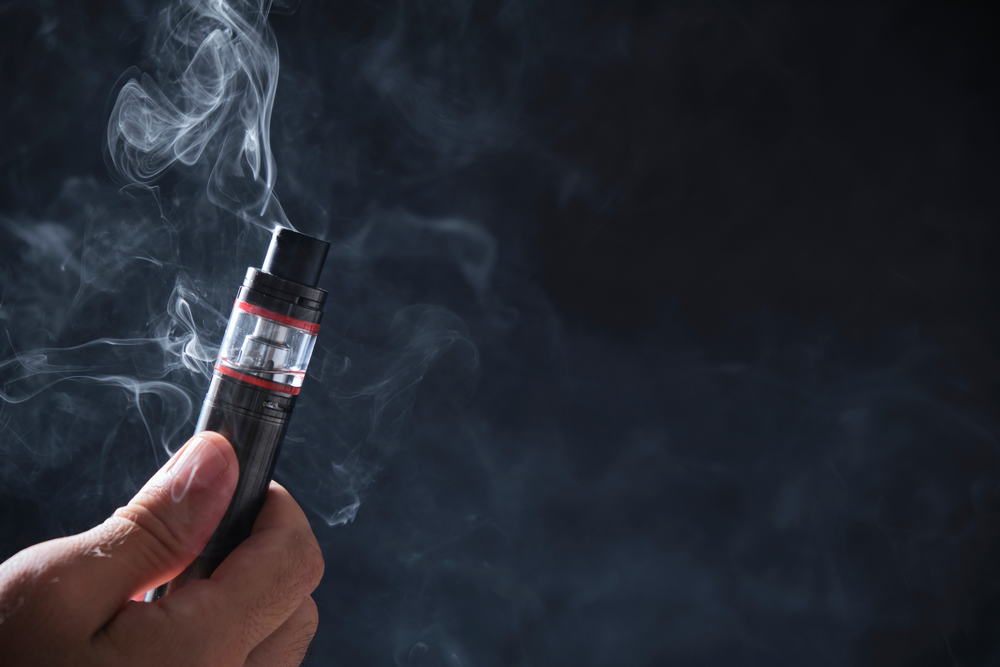
It has been a while since we discussed any of the basic concepts of using THC as a medicine. Given that there are now nearly 70,000 Medical Cannabis card holders in Utah, we thought it might be time to get back to some of those topics. So in this post, we are going to discuss decarboxylation.
Decarboxylation is the process that “activates” cannabis so that users can experience its effects. If cannabis plants don't undergo decarboxylation, they do not offer much help as a medicine. The plant's ingredients are not active in their natural state. And if they aren't active, they are not helping.
Decarboxylation takes inert compounds and makes them active. This can be done in several different ways. The easiest way is to apply heat, which is generally what manufacturers, processors, and actual users do.
When we talk about Medical Cannabis and its benefits for treating chronic pain, PTSD, etc., our conversations often relate to one cannabinoid in particular: THC. Furthermore, we commonly say that cannabis plants contain THC. That's technically not true. The unadulterated compound is actually THC acid (THCA). In its acid form, THC is not nearly potent enough for most medical needs.
To make it potent, THCA needs to be neutralized. This is accomplished by removing the carboxyl group, hence the term “decarboxylation.” When you decarboxylate THCA, you are left with THC. By the way, the same principle applies to CBD and all the other cannabinoids found in cannabis plants.
Smoking Medical Cannabis is prohibited in Utah. Even so, combustion does the trick. The high heat of combustion decarboxylates THCA quickly and effectively while the user gets the maximum amount of THC into the bloodstream right away, through inhalation. But since smoking is not allowed in the Beehive State, we need to do decarboxylation in other ways.
With an active Medical Cannabis card, you can visit a licensed Utah dispensary and purchase raw flower. You can place that flower in a dry herb vaporizer for consumption. The vaporizer applies enough heat to release the plant's active compounds – decarboxylated, of course – without actually burning the material. Therefore, you are not inhaling toxic smoke.
If you're not into dry heating, you can purchase Medical Cannabis products containing THC. Processors add THC to their products after extracting it from plant material and decarboxylating it. Decarboxylation may be accomplished using chemicals, but normally it's accomplished through heating cannabis crude oil.
Cannabis crude oil is the pure liquid extracted from cannabis plant material. It is distilled using a combination of heat and pressure to separate cannabis compounds by weight. The same heat and pressure that separates CBD from THC, for example, also decarboxylates both.
One last thing that might interest you is this: you can decarboxylate at home if you purchase raw flower from a Medical Cannabis pharmacy. Why would you want to do so? One common reason is to make cannabis-infused butter or oil for use in baking.
The easiest way to decarboxylate at home is to simply slow cook the plant material over the stove. We will not get into details here, but there are lots of tutorials online. There are also some appliances that can automate the process.
Decarboxylation is what makes inactive cannabinoid acids active. It is the secret to turning freshly harvested cannabis into a medical product. Without decarboxylation, Medical Cannabis would not be very effective for medicinal purposes. But with decarboxylation, cannabis plant material becomes incredibly valuable. And now you know.
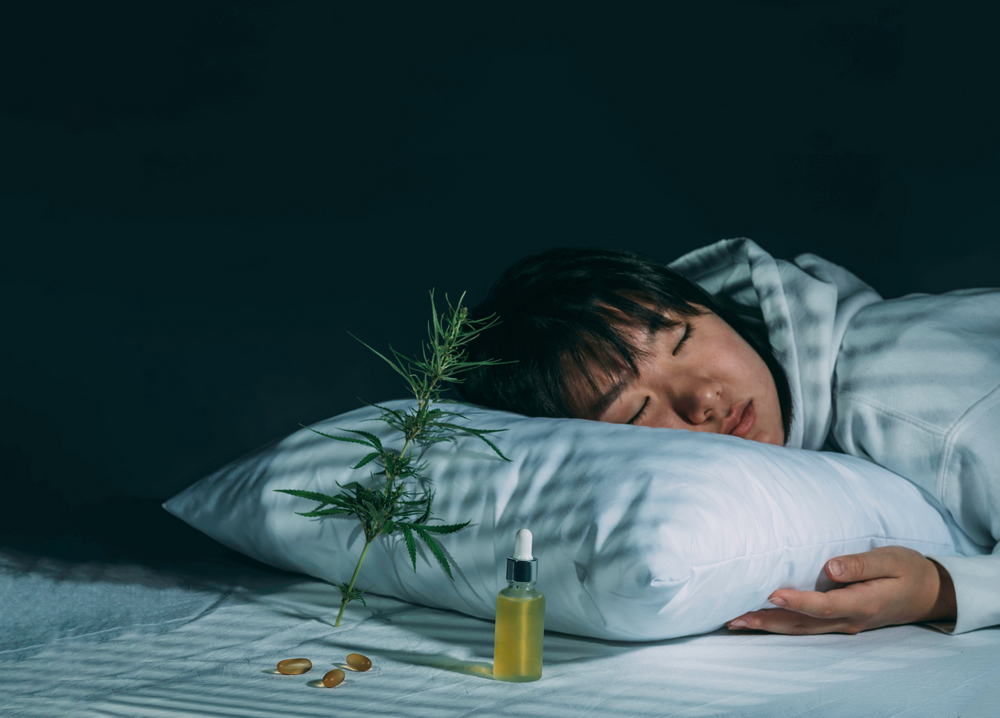
CBN, also known as cannabinol, is often marketed as the “sleep cannabinoid” or its purported ability to encourage better sleep. We say “purported” because there isn't a ton of clinical data supporting the idea. Anecdotal data abounds, but that's not enough to make scientific claims. One of the most convincing anecdotal studies was conducted in 2021, and it suggests CBN really might be the sleep cannabinoid people say it is.
As you might already know, there are over 100 naturally occurring cannabinoids found in cannabis plants. CBN is just one of them. CBN is a cannabinoid that actually comes from THC degradation. It is often extracted from older plants or biomass that hasn't been stored properly. As for its purported ability to enhance sleep, we're thinking that how it interacts with the CB2 receptor has something to do with it.
The previously mentioned 2021 study enrolled 388 participants between the ages of 18 and 80. The majority of the patients had never used CBN before. Most were women, but that isn't surprising given the fact that females are more likely to experience sleep problems than males.
It should be noted that the study was conducted as a joint effort between CBDistillery and a software company known as MoreBetter. It was divided into three sections: enrollment, a week without CBN, and three weeks during which CBN was taken nightly. Participants were asked survey questions every morning and the results were compiled. Here's what they showed:
The numbers look like a win to us. CBN was apparently a highly effective sleep aid for the majority of the study participants. Despite the study itself not being clinical in nature, it is hard to ignore the responses participants provided. CBN was clearly working for them.
Although insomnia and other sleep issues are not directly listed as qualifying conditions under state law, a lot of people who use Medical Cannabis experience sleep problems as one of the symptoms of their conditions. For example, PTSD patients commonly complain of insomnia. PTSD is a qualifying condition in Utah.
If you are a current patient and sleep problems are part of your daily experience, you might want to talk with your QMP or PMP about CBN. It could be the key to helping you sleep better. As a bonus, if you can improve your sleep, there is a possibility that some of your other symptoms will improve as well.
As always, be sure to track all your Medical Cannabis consumption. You especially want to track whenever you try something new. Tracking CBN consumption would definitely tell you whether it's helping you sleep. And if it is, making CBN part of your daily routine could obviously help a lot.
It is always good to read studies like the one conducted on CBN in 2021. The team here at Utahmarijuana.org firmly believes in the power of cannabis as a medicine. We have seen countless patients go on to lead better lives after getting their Medical Cannabis cards. We know there is a lot of potential, and studies are proving it.
CBN as a sleep aid is just one example. Thanks to research data, we have even more reasons to promote it as the sleep cannabinoid.

Utah's Medical Cannabis program has come a long way in just a few short years. It is still not perfect, but what an improvement we've seen since the program was first launched. Are you generally happy with the way things are right now? A survey conducted by the state late last year indicates most patients are.
It's easy to be dissatisfied with certain aspects of Utah's Medical Cannabis program. So we are encouraged to see such positive data from the state survey. It shows that we are definitely moving in the right direction. It demonstrates that most patients are being well served. We think that this is good.
Below are five questions from the survey along with our summaries of the responses. The data really is encouraging.
Note that all the questions on the survey asked participants to choose one of five responses ranging from 'strongly disagree' to 'strongly agree'. On the question of pharmacies consistently having the medicine patients need, 61% combined to either agree or strongly agree.
This particular statistic is important in light of the fact that the industry talks a lot about access challenges. Those challenges are real, but the majority of patients are finding the Medical Cannabis products they need when they visit their local pharmacies.
Quality is always a concern when consumers buy things. Perhaps it's a greater concern when you're talking medicine. Fortunately, 78% of the roughly 8,900 survey respondents are happy with the quality they get from their pharmacies. Quality really does matter in the Medical Cannabis world. High quality products just work better.
Quality is important, but Medical Cannabis is such that people also need access to a variety of products and delivery methods. Survey data suggests that Utah's pharmacies are delivering. Approximately 57% of the survey respondents are happy with the variety they have access to.
Next up, the survey asked patients whether they regularly need to alter their medications to get the dose they need. Surprisingly, 72% either disagreed or strongly disagreed with that statement. It would appear as though patients are able to use their medicines off-the-shelf without any dosage modifications necessary.
We are guessing this could be largely related to education among patients, QMPs, and PMPs. The more we learn about cannabis as a medicine, the more we understand how to use it effectively. The fact that so many patients don't feel they have to alter their medicines indicates we're on the right track.
Finally, 68% of Utah's Medical Cannabis patients say they are happy with the access they have through local pharmacies and home delivery service. This is definitely good stuff. We aren't sure if the number would be so high were home delivery not available in the state. But now that it is, patients located virtually anywhere in Utah can have their medicine delivered.
If you are a current patient, we trust your experience has been good so far. Both the industry and state regulators have been working diligently over the last several years to make the program as good as it can be.
If you aren't a patient but think you might qualify, we invite you to make an appointment with a QMP at any one of our clinics. We can help you obtain your Medical Cannabis Card and get you started on your journey to feeling better.
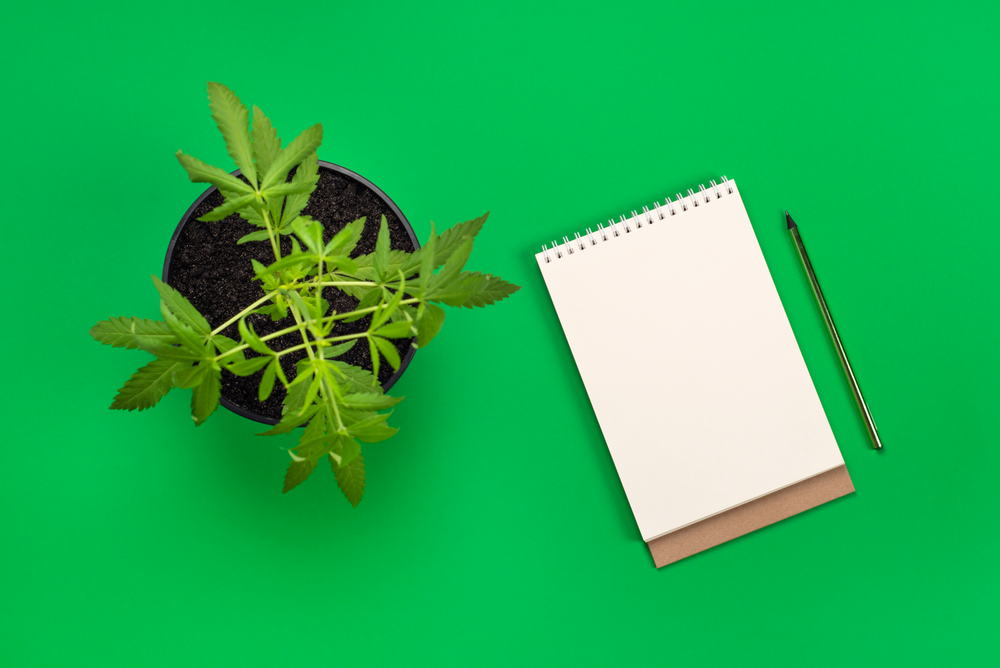
Tracking Medical Cannabis consumption is a good idea. It is something we routinely recommend to patients after helping them get their Medical Cannabis Cards. As for how many actually take our advice, we don't know. Every patient would track consumption in a perfect world.
How about you? Do you follow the state's recommendation to write down the details every time you use Medical cannabis? If not, you really should start. But don't just take our word on tracking cannabis use. Listen to your peers. And if you don't know anyone else who uses Medical Cannabis, we can refer you to a post that recently showed up on the Cannigma website.
The post was written by Cannigma regular Jessica Reilly. In her opening remarks, Reilly commented about how she really had no clue what she was doing when she first began her cannabis journey. Like so many others, the early stages of her journey were defined by trial and error. She went on to say that she wished she had "been better about tracking [her] cannabis experiences at the start."
One of the first things she discovered is that she barely knew the difference between indica and sativa. Anybody who has been on the journey for any length of time knows that indica and sativa are where it all starts. If you don't know the differences between the two cannabis types then it is pretty hard to make decisions about what you're going to use.
Another thing Reilly was unfamiliar with are the many different cannabinoids naturally occurring in cannabis plants. In a Medical Cannabis setting, the main cannabinoid everyone is after is THC. Still, some medical conditions are better treated with CBD. Even combining the two cannabinoids is appropriate for some people.
Did you know that there are over 100 naturally occurring cannabinoids? Did you know that some Medical Cannabis products contain more than one? These are all things people new to the Medical Cannabis journey need to learn over time.
Reilly was even surprised to learn about terpenes and how they affect the cannabis experience. Terpenes are those compounds found in plant life that produce the unique odors our noses recognize. Lemon has a specific odor, for example. We identify that odor by the easily recognized terpenes the tree produces.
Terpenes can actually impact how a Medical Cannabis product performs. You may react one way to certain terpenes while someone else reacts just the opposite. Just the difference in one or two terpenes can affect how well a particular medicine works for you.
By now you might be wondering what any of this has to do with tracking consumption. Here's the deal: the point of tracking is to create a record of every Medical Cannabis product you use and how it makes you feel. Tracking is a lot like budgeting. By keeping a written record, you can easily see what works and what doesn't. You can start seeing patterns develop. From there, you can make better decisions about how to use Medical Cannabis.
We recommend tracking everything and then sharing the information with your QMP and PMP. Both medical professionals can help you make sense of the data. They can better advise you on everything from delivery method to dosage.
Tracking consumption is essentially a tool to help you get the most out of Medical Cannabis. But don't take our word for it. Ask friends or family members who have already been on the journey for a while. Chances are they will recommend tracking, too.